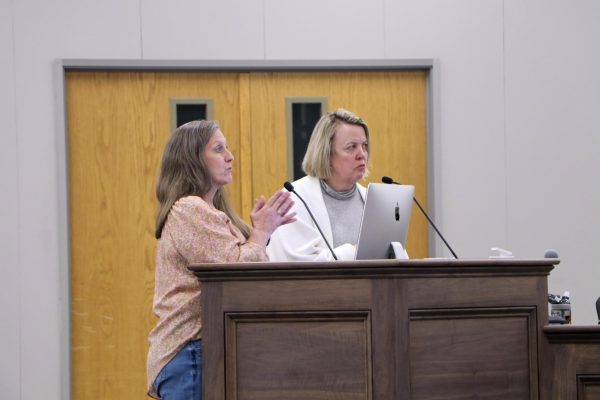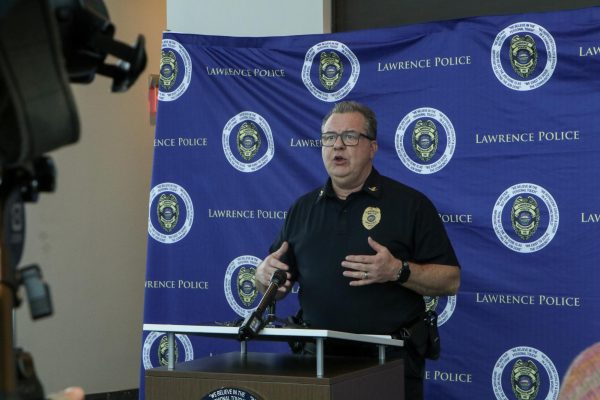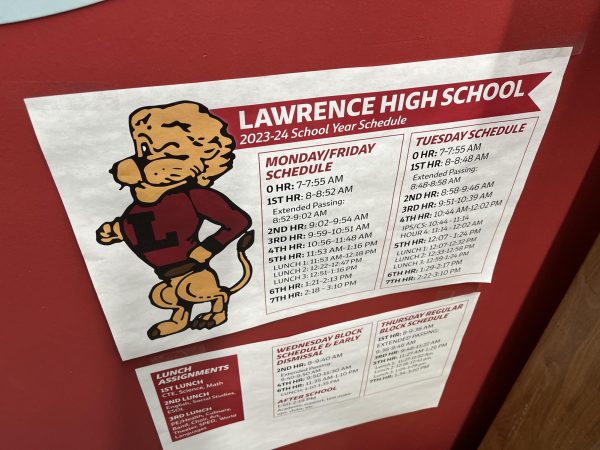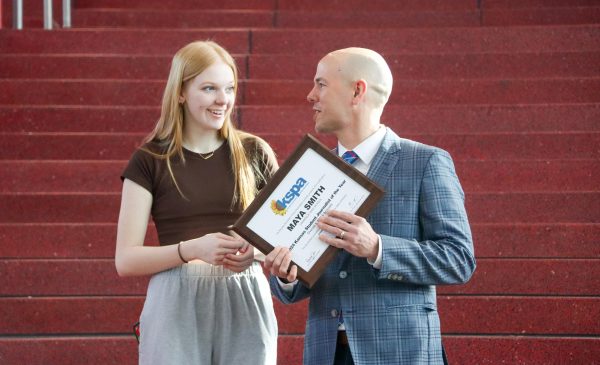Free ACT for juniors
Kansas government to cover cost for juniors to take the ACT
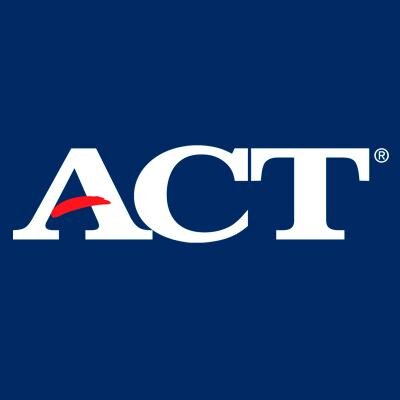
October 24, 2018
free stuff is the best kind of stuff.
Or at least it is to Trevor Arellano, a junior planning to take the free ACT exam in February 2019.
Juniors across the state of Kansas will be able to take the ACT college entrance exam free of charge thanks to a new law.
After encouragement from Kansas principals and superintendents, the Kansas Department of Education along with the Kansas Board of Regents, Gov. Jeff Coyler and legislators worked to get the law enacted.
“There was a study done in Michigan showing the benefits of providing universal ACT/SAT testing,” Denise Kahler, spokeswoman for the Kansas Department of Education, said in an email. “Particularly that it removes a logistical barrier for low income students to be able to apply for/pursue postsecondary education.”
Getting this postsecondary education is about to become very important.
A study done by the Georgetown Public Policy Institute reported that by 2020, 71 percent of Kansas jobs will require some level of postsecondary education. Yet, in Kansas, only 46 percent of high school graduates pursue and follow through with postsecondary education.
“Our goal is to make sure every student has what they need to qualify for jobs that provide livable wages,” Kahler said.
Along with the ACT test, students will also have the opportunity to take the ACT WorkKeys assessment. The WorkKeys test measures a student’s essential workplace skills and helps them to lay a pathway to the career right for them.
Both the ACT and ACT WorkKeys test will have half a school day dedicated to them on Feb. 20 and 21, respectively. Students will be able to take one, both, or neither of the tests on these days.
Senior Lex Moulton has decided to opt out of taking the exam.
“I’m not taking it anymore times because I’m about to start applying to college anyways,” Moulton said. “But I think it is helpful for people who are taking it a little bit last minute.”
That is the purpose of the ACT exam — to measure a student’s readiness for college — and offering this exam allows more students to make informed decisions about their futures.
“It gets more people involved with college prep tests and things,” Arellano said.
In 2017, 73 percent of graduates took the ACT. With a greater number of students taking the test, the state’s average composite score of 21.7, which is above the national average of 21.0, is likely to decline.
“But we shouldn’t be worried about what it will do to test scores,” Kahler said. “The focus needs to be on doing what is right for students.”



















